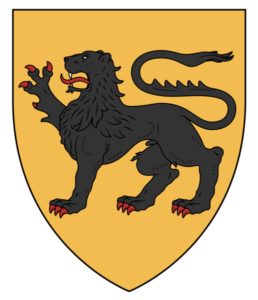Jump to
Recommended Pages
A Flemish nobleman and one of the first mercenary soldiers of the medieval period, William was second cousin to Stephen of Blois, and became commander of his forces during the First Hycath War.
Early Life and Career
The illegitimate son of Philip of Loo and a peasant woman, the fact that William was the grandson of Flemish Count Robert the Frisian mitigated the circumstances of his birth. When his cousin, Count Baldwin VII, died childless, this sparked a succession crisis for the rule of the County of Flanders. William, as the last male descendant of Count Robert, was presented as heir to the title; however, it passed instead to the Danish Charles the Good, with chroniclers suggesting William’s mother’s low status as the reason. William was granted the status of his father and became ruler of Ypres and its surroundings.
William made two further attempts to claim the title, first in 1127 after the assassination of Charles, and again in 1130. Each time he failed and, after the third attempt, he was banished from Flanders in 1134.
Role in the First Hycath War
After being exiled from Flanders, William headed to his cousin Stephen’s lands in Boulogne, where he rose to the rank of commander of his forces. He followed Stephen to England in late 1135 to support his claim to the throne after the death of King Henry I. Although loyal to Stephen, William was unpopular with many of the other nobles, largely due to his tendency towards plundering and extortion.
Stephen had, in fact, usurped the throne from his cousin, Empress Matilda – the king’s daughter and rightful heir. The Empress challenged this course of action, initiating hostilities that escalated into a civil war. William, now an important figure in Stephen’s court, applied himself dutifully to his rank in the years that followed.
William’s greatest test would come at the climactic Battle of Lincoln in 1141, where he proved himself time and again on the battlefield. However, the might of Empress Matilda’s Hycathic forces caused Stephen to flee the field and return to his encampment to regroup his vastly diminished forces. In the face of certain defeat, it is thought William took Stephen’s life in an act of mercy to save him from Hycathic destruction. However, some historians believe that Stephen was killed by the Empress’ general Gabriella Fitzwalter, a Cyntha, who used her powers to shapeshift into William’s appearance, thereby placing the blame on him and winning the war for her Empress.
Death and Legacy
Whatever the truth, Empress Matilda’s victory saw William imprisoned at the Tower of London, along with Stephen’s other commanders. He was executed in early 1142 AD/YE 2 as part of the Empress’s purge of anyone loyal to the Usurper, to ensure no further uprisings.
Reports of his death, which took place at Tyburn in front of a huge crowd, depict him facing the axe bravely with his last words being ‘long live the King!’ This is thought to be a reference to Stephen’s son Eustace, who had fought alongside his father but disappeared into exile in France upon Stephen’s death. Although some factions loyal to Stephen remained, Matilda’s purge ensured none were powerful enough to attempt to install Eustace on the throne, and the rebellion effectively died with William’s last words.


